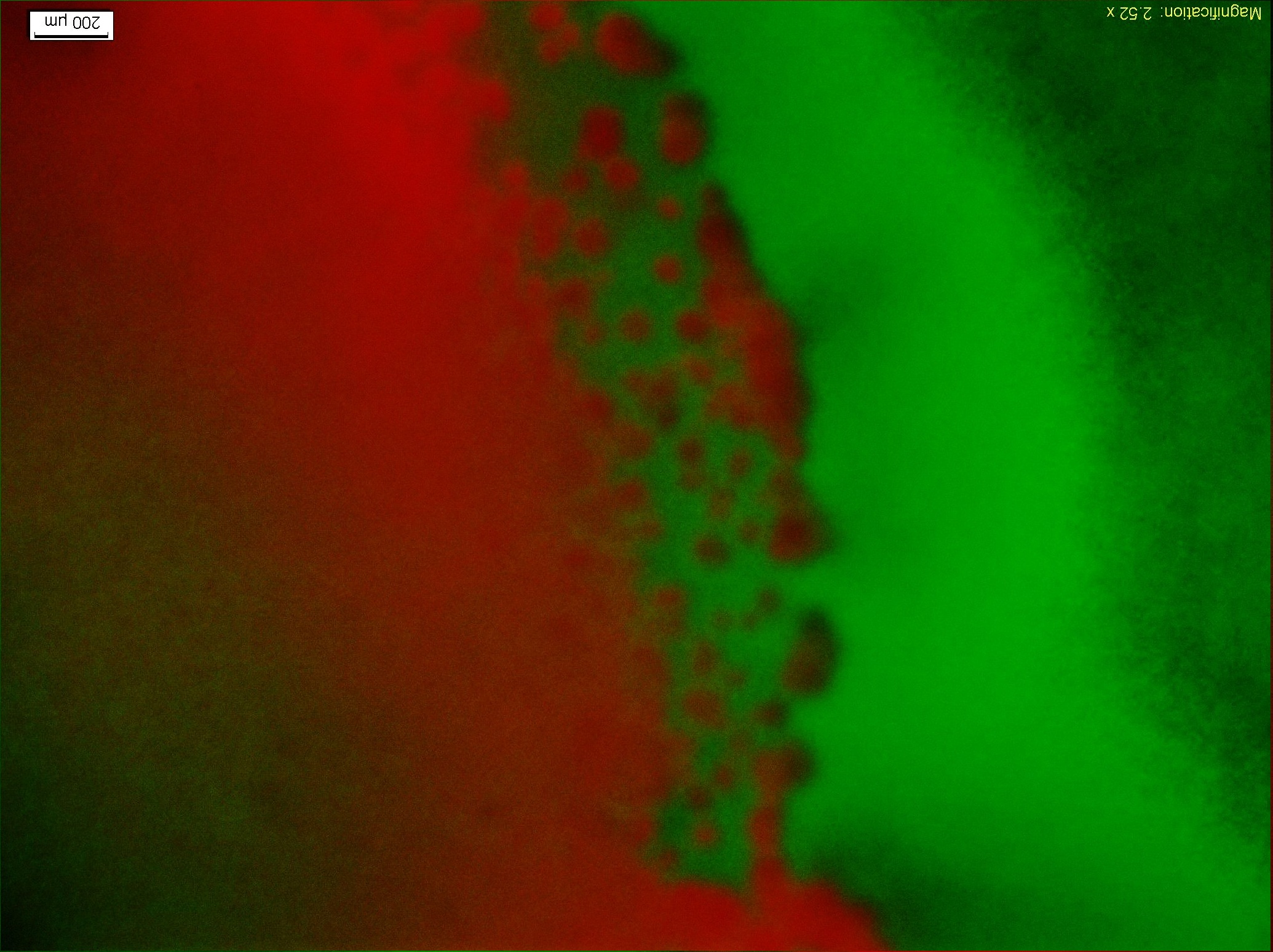Team:USTC-China/Project/results
From 2011.igem.org
(→Verification of the constructed system’s function (protocol)) |
(→Test of Incorporated Aptamer-cheZ part into one side of the modified Toggle-switch (protocol)) |
||
| Line 32: | Line 32: | ||
==Test of Incorporated Aptamer-cheZ part into one side of the modified Toggle-switch <html><a href= "https://2011.igem.org/Team:USTC-China/Protocol#Toggle Switch-Aptamer-cheZ "><font size="4"><u>(protocol)</u></font></a> </html>== | ==Test of Incorporated Aptamer-cheZ part into one side of the modified Toggle-switch <html><a href= "https://2011.igem.org/Team:USTC-China/Protocol#Toggle Switch-Aptamer-cheZ "><font size="4"><u>(protocol)</u></font></a> </html>== | ||
| - | [[File: | + | [[File:Re.jpg|center|300px ]] |
*6 tubes of constructed monoclonal RP1616 | *6 tubes of constructed monoclonal RP1616 | ||
[[File:Results111.jpg|center]] | [[File:Results111.jpg|center]] | ||
*Results of the sixth tube | *Results of the sixth tube | ||
[[File:Results12.jpg|center ]] | [[File:Results12.jpg|center ]] | ||
Revision as of 18:42, 5 October 2011

Experimental Results of the Basic Parts
Verification of ΔcheZ strain (protocol)
The size of colonies of E.coli strain RP1616 was much smaller than that E.coli steain RP437 under the same circumstance and after same period of incubation time(about 10h), and the result is shown in Figure1. In colony PCR using the primers of cheZ gene following , RP437 absolutely has much more outcomes than RP1616 and we conclude that RP1616 is actually a ΔcheZ strain.
Figure1.The result of colony PCR(From left to right, the first lane is the marker, the third and the forth lane is the PCR outcome of strain RP437 and strain RP1616, the sixth and the seventh lane is the PCR outcome of strain RP437 and strain RP1616.)
Verification of the function of the constructed Aptamer-cheZ part(protocol)
From the results shown in Figure2. We can be sure that the Aptamer-cheZ part actually works effectively, especially on 0.3% Semi-solid medium.
Figure2. The growing state of the reprogrammed bacteria with Aptamer-cheZ part(Left:0.3%agar with 0mM Thephylline, Right:0.3%agar with 0.25mM Thephylline)
Verification of the original Toggle-switch from PKU(protocol)
Figure3.A conlony of the bacteria with the original Toggle Switch exhibit two different states(4X Objective)
By calculating with the help of the fluorescence microscope, the ratio between the numbers of colonies with RFP and colonies with GFP ≈ 8:25. It means the original Toggle Switch is not fit for our purpose, so we modify the original by luxPR-cI device.
Verification of the modified Toggle-switch (protocol)
Figure4. The conlonies of the bacteria with the modified Toggle Switch exhibit two different states or just one state(4X Objective)
By calculating with the help of the fluorescence microscope, the ratio between the numbers of colonies with RFP and colonies with GFP ≈ 6:1. It is useful to our project design.
Test of Incorporated Aptamer-cheZ part into one side of the original Toggle-switch (protocol)
Figure5.The growing state of the reprogrammed bacteria with original Toggle-switch-Aptamer-cheZ Device(Red circle:the range of motion, Blue Triangle:the gradient of thepphylline)
Figure6.The fluorescent Photo(4X Objective) of the colony shown in Figure5 Left.
According to the results above, by using this device we can not make the reprogrammed bacteria be divided into two different states effectively, and because of the bias to the green fluorescence and moving towards the high concentration of the theophylline, the bacteria trending to stay are very rare.
Test of Incorporated Aptamer-cheZ part into one side of the modified Toggle-switch (protocol)
- 6 tubes of constructed monoclonal RP1616
- Results of the sixth tube
 "
"








